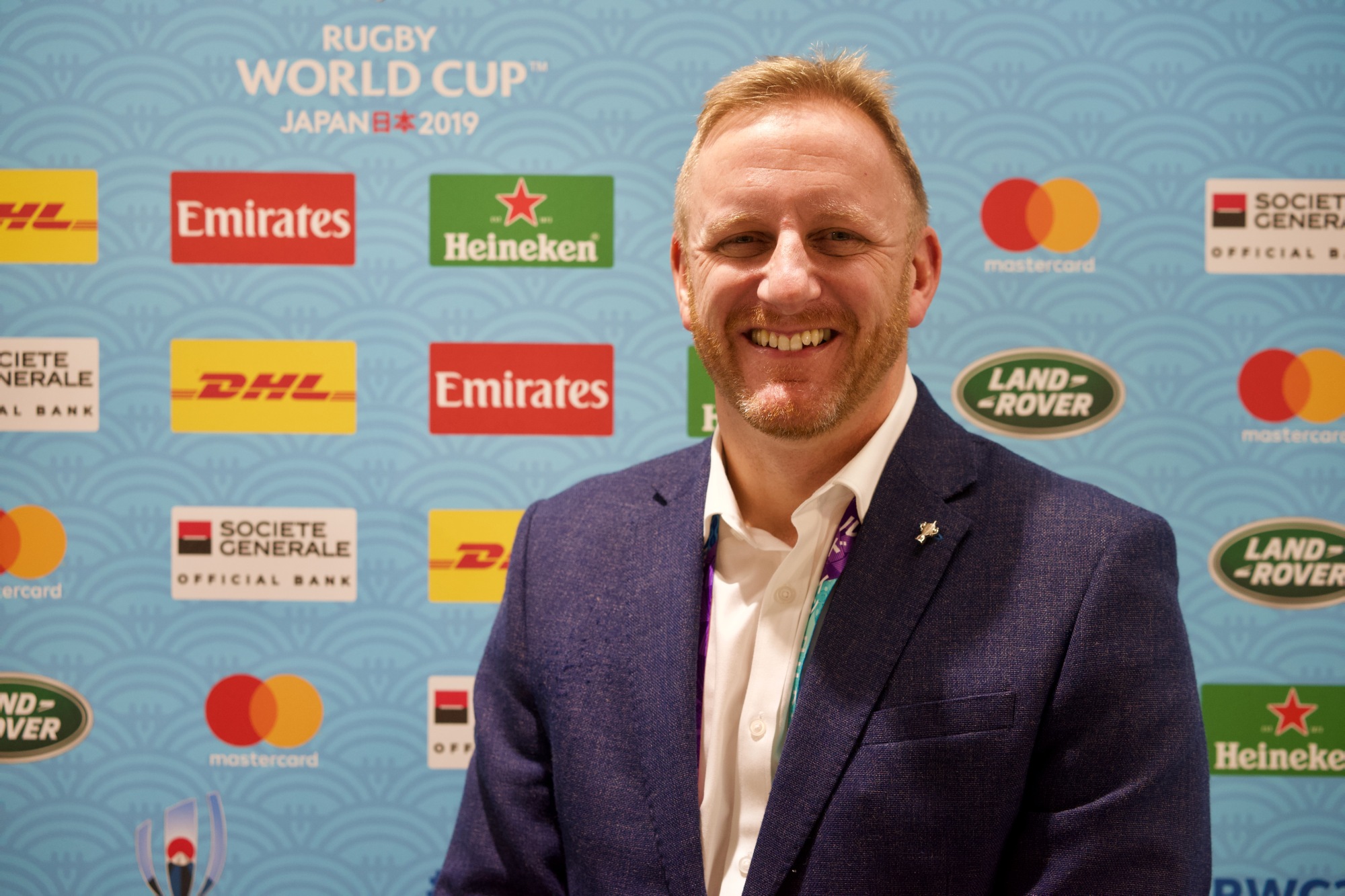Blood, sweat and tears will be shed over the next six weeks as 20 teams fight for the 2019 Rugby World Cup in 12 stadiums across Japan, which will become the first Asian nation to host the tournament after an opening ceremony Friday kicks off the ninth iteration of the sport's quadrennial showcase.
"The first World Cup in Asia. The first World Cup outside what you might call our strongest traditional host nations. Ten years in the making," Alan Gilpin, chief operating officer and head of the Rugby World Cup at World Rugby, said during an interview. "The vision for the tournament was all about this being an opportunity to grow the sport, not just in Japan, but in Asia."
Twenty teams divided into four pools will vie for eight spots in the knockout rounds, after which point the remaining teams will fight for survival in the quarterfinals through to the semifinals and final.
The quarterfinals will be held on Oct. 19 and the semifinals will take place the following weekend. The final will be held at International Stadium Yokohama on Nov. 2.
Japan will look to follow up its now legendary 34-32 victory over South Africa in Brighton, England, during the 2015 World Cup, when it takes on Russia in the opening game on Friday at 7:45 p.m. at Tokyo Stadium.
Following the opener, the Brave Blossoms face Ireland on Sept. 28, Samoa on Oct. 5 and Scotland on Oct. 13 to round out the group stage.
"It's hard to imagine, actually, what things would be like if that amazing game in Brighton hadn't happened. The fact (is) that it ignited a kind of passion here with Japanese supporters for Rugby World Cup," Gilpin said. "It's probably the most valuable game of rugby ever played."
Australia and South Africa will both be looking for a third World Cup title, while England hopes to get a second to go with its victory in the 2003 tournament.
New Zealand, vying for its third straight title and fourth overall, won the tournament in 1987, 2011 and 2015 and the All Blacks are once again the favorites to lift the Webb Ellis Cup.
The trophy is named after William Webb Ellis, who some believe invented rugby when he picked up the ball during a soccer match in the early 1800s.
More than 400,000 people from around the world are expected to attend the Rugby World Cup, presenting Japan with both opportunities and challenges.
In September last year, World Rugby, the governing body of rugby union, instructed athletes and supporters to cover up tattoos when visiting pools or gyms in Japan, owing to local taboos from their association with yakuza gang members and other crime syndicates.
While municipalities and local tourism associations are electing to let individual establishments decide whether they will accept visitors with tattoos into their facilities, others are jumping on the opportunity.
Oita Prefecture, which is hosting five matches and is home to Beppu and Yufuin — two of the most famous hot-spring destinations — is welcoming tattooed guests by setting up English websites and providing maps with tattoo-friendly establishments.
In May, the Japanese organizing committee of the 2019 Rugby World Cup urged businesses in host cities to secure sufficient beer supplies, fearing they could run out like restaurants and bars did during past tournaments.
During the 2015 tournament in England, the committee said, beer consumption was more than six times the amount consumed during soccer games at the same venues, and total beer consumption across all game venues and public viewing sites topped 1.9 million liters.
But there is much to be gained for Japanese businesses, as the economic impact of the tournament is estimated to be over ¥430 billion (about $4 billion), according to the tournament's organizers.
"We think that this is going to be the most competitive Rugby World Cup we've ever had," Gilpin said. "We're seeing incredible numbers of Japanese fans going to team training sessions, getting involved and welcoming teams, and I think the international fans are going to see something very different to what they're used to, which is brilliant."




















With your current subscription plan you can comment on stories. However, before writing your first comment, please create a display name in the Profile section of your subscriber account page.